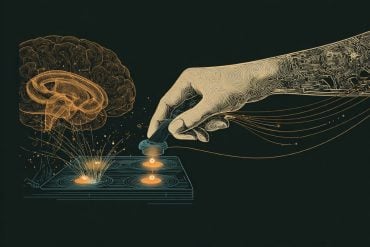Summary: Individuals who perceive themselves as more powerful in their romantic relationships are more likely to show interest in alternative partners. This heightened sense of power leads to greater confidence, feelings of desirability, and belief in having more relationship options, which can weaken commitment.
Across four experiments, researchers found that relationship power dynamics predict behaviors such as sexual fantasies, flirting, and seeking new partners. While power can strengthen individual self-perception, it may also undermine relationship stability by encouraging impulsive behaviors and less dependence on a current partner.
Key Facts:
- People with higher perceived relationship power are more likely to fantasize about or pursue alternative partners.
- Power boosts self-perception as a desirable partner and reduces dependence on a current partner.
- These dynamics can weaken commitment and increase the risk of infidelity in relationships.
Source: University of Rochester
Being a captain of industry, a politician, or a celebrity won’t automatically make you a cheat. But chances of infidelity are significantly higher among the more powerful, according to a new study published in Archives of Sexual Behavior.
Psychologists from Reichman University in Herzliya, Israel, and the US-based University of Rochester conducted a series of experiments and discovered that power dynamics play an important role in how people feel and behave when it comes to being faithful to their spouses or significant others.

Why? Prior research has established that feeling and being perceived as powerful can make people feel more confident and entitled—and likely to act more impulsively.
Previous studies have shown that those who possess relatively greater degrees of power have more potential to influence, change, or control another person, or, conversely, to resist another person’s efforts to influence them.
The new study adds to the body of existing research by applying it specifically to intimate relationships, finding that those who feel more powerful are less dependent on others, think more highly of themselves, and are more confident that others find them desirable.
“In a romantic relationship, these power dynamics might lead the more powerful partner to think they bring more to the table than their less powerful partner,” says lead author Gurit Birnbaum, a professor of psychology at Reichman University.
“The more powerful might see this as a sign that they have more options outside the relationship and are more desirable partners in general.”
Four tests of relationship power dynamics
The researchers conducted a series of four studies to test how perceptions of relationship power influence a person’s interest in alternative partners. They recruited participants who were in monogamous, heterosexual relationships of at least four months.
- In the first study, as a form of power manipulation, participants were asked to describe either a time they felt powerful vis-à-vis their current partner or a typical day in their relationship. Afterward they wrote a sexual fantasy about someone other than their partner.
- In the second study, following the same power manipulation, participants looked at photos of strangers and decided under time pressure which ones, if any, they would consider as potential partners.
- In the third study, participants described the power dynamics in their existing romantic relationship and rated their own perceived power and mate value compared to that of their partner. Next, participants were asked to complete a task with an attractive person, who was a study insider, and then rated their sexual desire for the insider.
- In the fourth study, both partners in a relationship reported separately each day for three weeks on their perceived relationship power, their perceived value as a partner, and any sexual activities—including sexual fantasies, flirting, or having sex—with someone other than their partner.
The destructive side of power
Across the four studies, the team found that perceptions of power within a relationship significantly predicted a person’s interest in other potential mates—including sexual fantasies, desires, and real-life interactions. That is, people who perceived themselves as having more power in their relationship were more interested in others as potential partners.
“Those with a higher sense of power may feel motivated to disregard their commitment to the relationship and act on desires for short-term flings or potentially other, more novel partners if the opportunity arises,” says coauthor Harry Reis, a psychology professor at the University of Rochester.
People who feel more powerful in their relationship tended to rate their value as a partner higher than their partner’s value, which could become destructive.
“When people feel powerful and believe they have more relationship options than their current partner, they might be more inclined to pay attention to other potentially promising alternatives,” says Reis.
“The belief in having other options, like other possible partners, can weaken their commitment to their current relationship.”
About this relationships and psychology research news
Author: Sandra Knispel
Source: University of Rochester
Contact: Sandra Knispel – University of Rochester
Image: The image is credited to Neuroscience News
Original Research: Open access.
“The Power to Flirt: Power within Romantic Relationships and Its Contribution to Expressions of Extradyadic Desire” by Gurit Birnbaum et al. Archives of Sexual Behavior
Abstract
The Power to Flirt: Power within Romantic Relationships and Its Contribution to Expressions of Extradyadic Desire
Power in non-romantic contexts makes people confident in their ability to attract potential partners, increasing their mating motivation and the likelihood of acting on this motivation.
Four studies investigated whether perceptions of power within romantic relationships would also activate mating goals, intensifying desires for alternative partners.
In Studies 1 and 2, participants underwent power manipulation and then described a sexual fantasy or evaluated photos of attractive strangers.
Studies 3 and 4 used face-to-face interaction and daily experiences methods to examine the mechanisms underlying the link between power and extradyadic desires.
Overall, high perceived relationship power was associated with increased interest in alternatives.
Perceived relative mate value explained this association, suggesting that what determines whether power elicits extradyadic interest is not power perceptions alone but rather the feeling of having a higher mate value than one’s partner that accompanies elevated power and affects whether high-power individuals will prioritize their own needs in ways that may hurt their partners.






